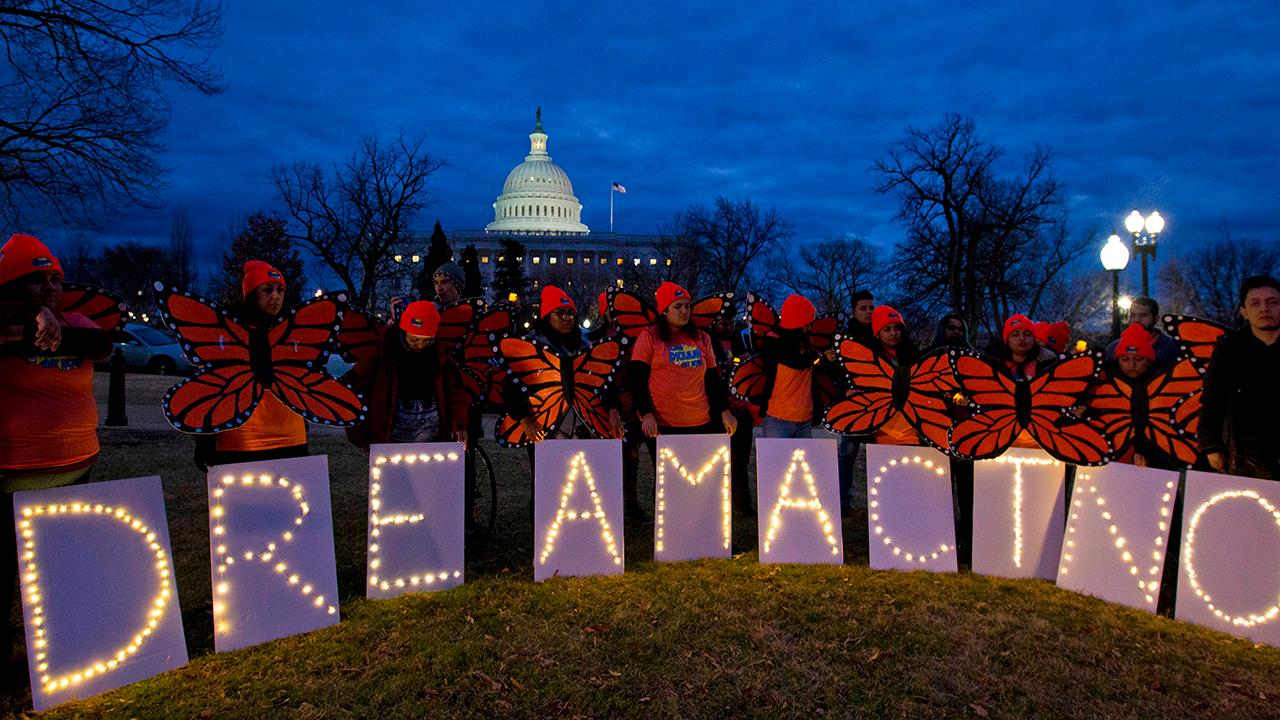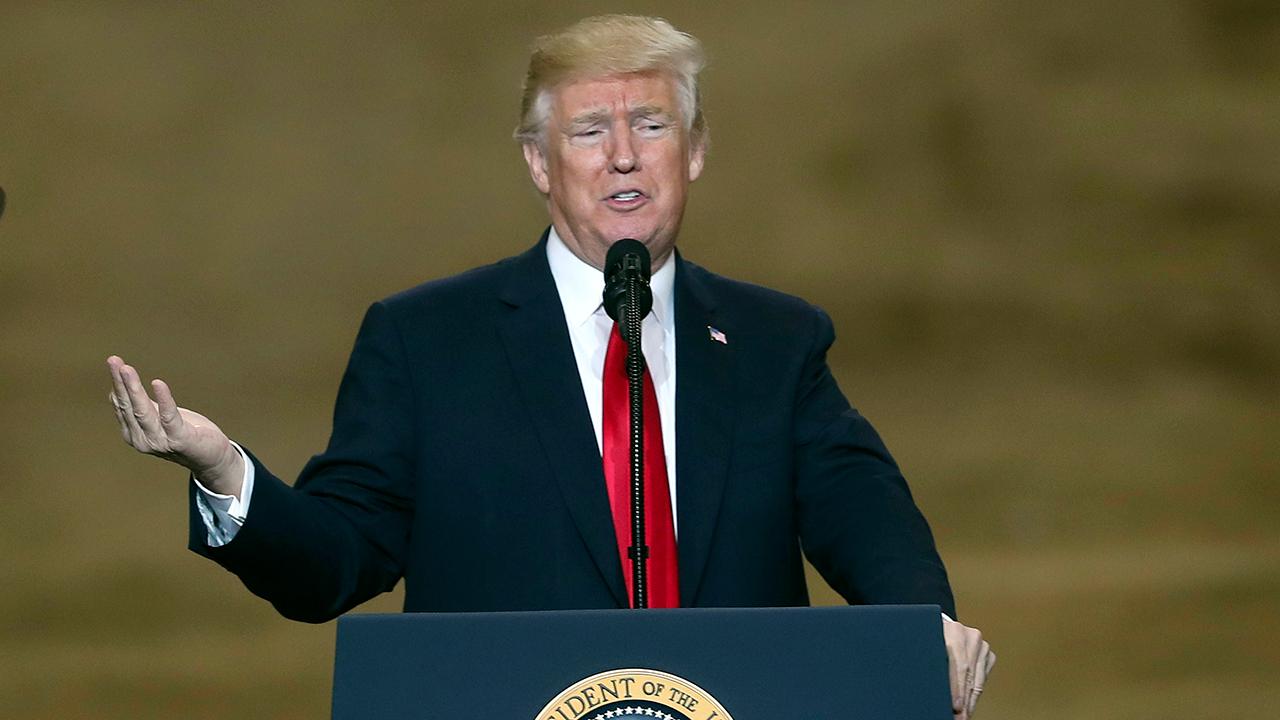New effort to force Trump administration to end DACA
Texas Attorney General Ken Paxton explains lawsuit on 'Fox News @ Night with Shannon Bream.'
A group of seven pro-DACA House Republicans on Wednesday started a process to go over the head of the House Republican leadership and force debates and votes later this year on a series of bills related to immigration and the Obama-era program affecting young illegal immigrants.
The Republican brass, and many rank-and-file GOPers, are reluctant to descend into a debate about immigration just before the midterm elections in November. But this process could very well trigger that.
Reps. Carlos Curbelo, Mario Diaz-Balart and Ileana Ros-Lehtinen of Florida; Jeff Denham and David Valadao of California; Will Hurd of Texas; and Mia Love of Utah initiated a “discharge petition” on the floor on Wednesday.
If 218 members sign the petition, the House will be forced to consider a set of four immigration bills on the floor. It’s likely that most, if not all, 193 House Democrats will sign on, meaning just 25 Republicans are needed to initiate this rare maneuver.
The gambit would compel the House to consider a conservative immigration plan drafted by House Judiciary Committee Chairman Bob Goodlatte; the Democrats’ DREAM Act, backed by California Democratic Rep. Lucille Roybal-Allard; a plan from the House Republican leadership; and a bill by California Democratic Rep. Pete Aguilar and Hurd that grants legal status to many recipients of DACA.
DACA is short for Deferred Action for Childhood Arrivals, a program that provides a level of amnesty to young people brought to the U.S. illegally as children.
Under the discharge petition, the House would debate and vote on each proposal. The one securing the most votes would be designated “queen of the hill.” The House would later take an additional vote on the “queen” bill. If the House approves the measure a second time, it will truly emerge as “king of the hill,” thus earning passage by the House.
That said, just because a measure succeeds at the “queen” level doesn’t mean it will win at the “king” one, too. In other words, passage of anything is far from guaranteed under this process.
House Speaker Paul Ryan, R-Wis., has resisted this process and had an animated conversation on the floor earlier this week with Curbelo.
“I don’t think that’s the right way to go,” Ryan said when asked about the strategy a few weeks ago. “I don’t want to bring up legislation that won’t get signed into law. I don’t think it makes any sense to bring a bill through a process that would produce a bill that will get a presidential veto. I just don’t think that’s in anyone’s interest.”
Discharge petitions aren't typically successful in the House. A bipartisan group of lawmakers circumvented the leadership in October 2015 to reauthorize the Export-Import Bank. Before that, the last successful discharge petition involved a campaign finance law in 2001.
The president could veto something that emerges from the “queen of the hill” approach. There’s also no guarantee that the Senate would consider any bill. The problem for some Republicans is that Denham’s approach puts them on the record as voting for or against a nettlesome issue like immigration and DACA policy months before the midterm.
There’s also another problem with discharge petitions. The House will only consider discharge petitions on the second and fourth Mondays of every month. Days that could work include June 25, July 23 and maybe Dec. 10. It’s unclear if any of those dates would be politically advantageous to the push, though some might make the case that there's a clear benefit in the date that falls after the elections.
But it’s also close to the end of Congress' business for the year. Such a plan would have to get through the Senate, too, and so it could run out of time.







